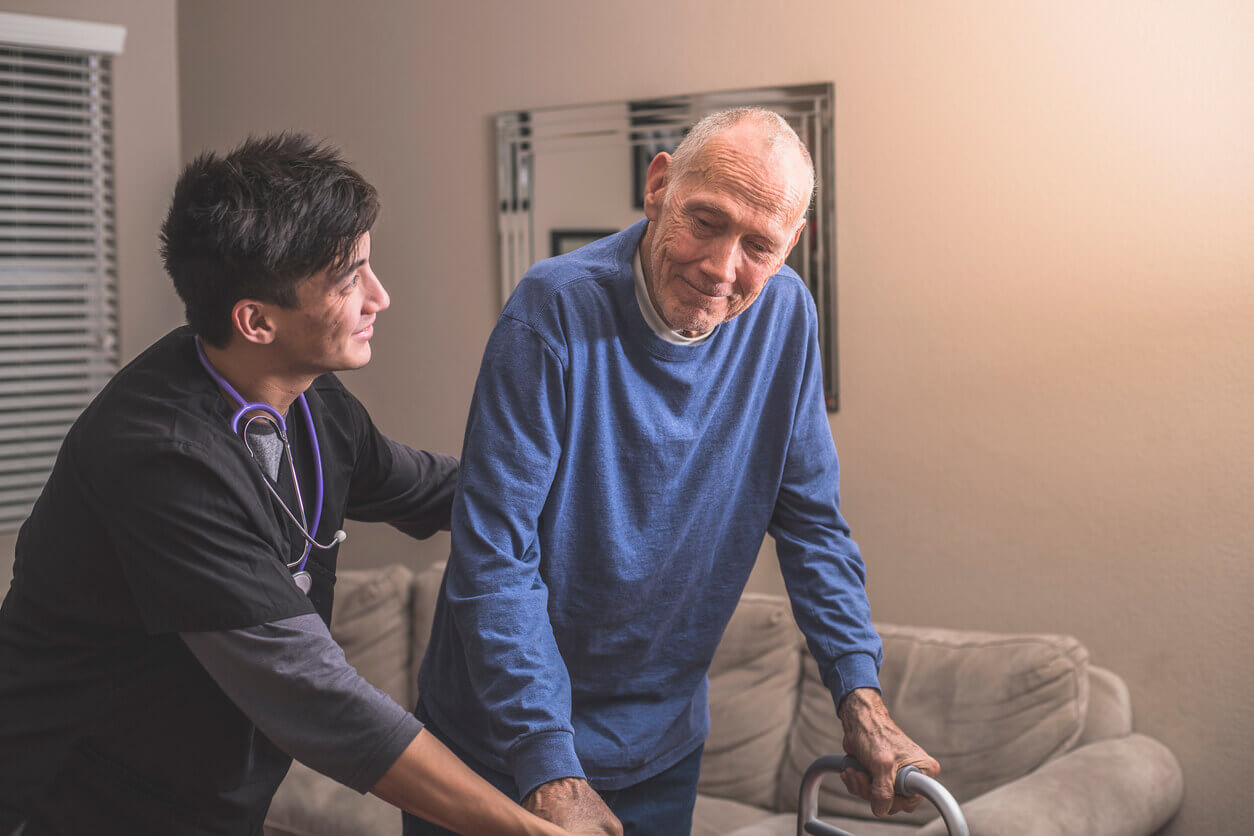
As we age, we come to terms with the inevitable end of life. It’s one of those topics that many people would rather avoid.
In truth, discussing end-of-life becomes much easier when there’s a pre-existing plan in place, and this is where the importance of proper care comes in. Understanding what end-of-life care entails is important for both the people who need care and their loved ones.
In this article, we will discuss what it means by end-of-life care, the available care, and why they are important.
What is End of Life Care?
End-of-life care refers to the support and medical care provided during the time leading up to a person’s death. Depending on the individual’s health condition, this could range from weeks to months or even years. The goal is not to cure illnesses but to provide comfort and maintain the highest possible quality of life for as long as life lasts.
This care includes managing physical symptoms, providing emotional and psychological support, helping with decision-making about treatment options, and ensuring the person’s wishes are followed in their final days.
Hospice Care
Hospice care is a holistic approach to end-of-life care that focuses on providing relief from the symptoms and stress of a life-limiting illness. The goal of hospice care is to improve the quality of life for both the patient and the family.
Hospice care teams usually include doctors, nurses, social workers, therapists, counselors, and trained volunteers. They work together to provide medical, psychological, and spiritual support. The care is primarily provided in the patient’s home but can also be provided in freestanding hospice centers, hospitals, nursing homes, and other long-term care facilities.
Who is End of Life Care for?
End-of-life care is designed for individuals dealing with a life-limiting or life-threatening illness. This includes, but is not limited to, conditions such as cancer, heart and lung diseases, motor neuron disease, multiple sclerosis, Alzheimer’s disease, dementia, renal disease, stroke, and other neurological or life-limiting illnesses.
Importantly, this type of care is not confined to those who are nearing the end of their lives. It can be accessed by anyone suffering from a life-limiting or chronic ongoing illness, irrespective of their age, culture, background, or beliefs.
Furthermore, this type of care is not exclusive to cancer patients. It is available to all individuals who need assistance in managing physical symptoms, such as pain or breathlessness, regardless of the nature of their illness.
The Importance of Discussing End-of-Life Care
Discussing this type of care can be emotionally challenging, but it’s a crucial conversation about this topic for several reasons.
Ensuring Personal Wishes Are Respected
First and foremost, these conversations ensure the person’s preferences and wishes are understood and respected. These can include decisions about medical interventions they may or may not want, where they would prefer to spend their last days (at home, in a hospice, etc.), and their thoughts on spiritual or religious practices at the end of life.
When these details are discussed openly, it allows for a plan that aligns with the individual’s values and desires.
Facilitating Medical Decision Making
Understanding a person’s wishes for end-of-life can guide medical decision-making when the person can no longer express their wishes. This can involve decisions about resuscitation, the use of a ventilator, artificial nutrition, and more.
When healthcare providers know a patient’s preferences, they can provide care that is consistent with the patient’s values.
Preparing Loved Ones
Discussing end-of-life care also helps prepare families and loved ones for what’s to come. It provides them with a clear understanding of the person’s health condition, the likely progression, and what to expect during the final stages. This knowledge can help alleviate some of the fear and uncertainty associated with this challenging time.
Easing Emotional Burdens
Having open conversations about end of life can provide emotional relief for both the individual and their loved ones.
It can offer a sense of peace knowing that plans are in place, wishes have been expressed, and there will be no uncertainties about what the person would have wanted.
Financial Planning
Finally, these discussions also allow for financial planning. End-of-life care can be expensive, and a clear plan can help families manage these costs more effectively, reducing financial stress during an emotionally challenging time.
Different Care Settings at the End of Life
The following are the three common places where end-of-life care can take place.
Home-Based Care
For many people, home is a comforting and private setting for end-of-life care. It allows family and friends the freedom to visit without restrictions typically found in formal care settings.
However, it’s important to remember that caring for someone at home can be physically, emotionally, and financially challenging. Therefore, additional support from paid caregivers or home hospice care providers may be necessary.
Hospital Care
Hospitals provide access to medical professionals who understand the unique needs of a dying person. Hospice care teams can assist with symptom management and medical decision-making. This setting can be particularly beneficial for patients with complex medical needs.
Nursing Homes or Long-Term Care Facilities
Many individuals receive this care in nursing homes or long-term care facilities. Here, nursing staff are always present, and doctors are available when needed. Hospice teams can also provide end-of-life care in these facilities, ensuring that patients receive comprehensive support.
End-of-Life Care in Pennsylvania
At Advantage Home Health & Hospice, we offer proven and trusted hospice care in the comfort of patients’ homes. Our highly trained and compassionate end-of-life care provider provides support, education, and clinical care that addresses the needs of patients and their primary caregivers. In addition to home-based care, our multidisciplinary team offers care in skilled nursing and assisted living facilities.
To learn more about services provided by Advantage Home Health and Hospice, call our friendly staff today at (844) 275-2205 or use our convenient online information request form.


